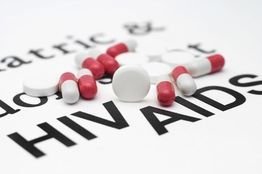
HIV trial validates novel drug mechanism
Singapore: Biotron has announced preliminary results from a human trial of its lead antiviral drug BIT225 to treat HIV infection 'hidden' in reservoir precursor cells. The phase Ib/IIa trial has demonstrated that Biotron's BIT225 targets HIV replication in monocyte cells in treated patients. These cells become infected with HIV and are the seeds of hidden HIV pools in patients, setting up long-lived macrophage reservoir cell populations in various sites in the body. The trial has demonstrated that BIT225 is capable of significantly reducing virus levels in these cells.
Biotron's MD, Dr Michelle Miller said the data were 'very encouraging' and could pave the way for a new generation of HIV treatment. Dr Miller said, "We are thrilled with these results, which validate Biotron's novel approach to tackling HIV. For the first time we have a potential treatment which may halt the ongoing cycle of infection and reinfection with virus from these long-lived cells. This is a significant development for our Company and has the potential to impact HIV research globally, particularly in terms of treatment in an important HIV reservoir. The results suggest that BIT225 is a candidate agent that could be useful in future eradication strategies."
Targeting virus reservoirs is regarded as the 'holy grail' of current HIV research. Monocytes are blood cells that become infected with HIV, then move out of blood vessels into different organs such as the liver, lungs, gut and brain, where they mature into macrophages. HIV replicates at low levels in these infected macrophages, acting as ongoing sources of virus in patients. Existing drugs are ineffective in treating HIV in these cells.
BIT225 is synergistic in vitro with commonly used anti-retroviral therapies and would potentially be used in conjunction with these treatments. Current approved anti-HIV drugs target HIV in T cells, and their use is aimed at keeping virus levels in the blood in check and ensuring T cell counts stay in a healthy range. However, these approved treatments do not target underlying viral reservoirs that exist in other cells in the body and which act as ongoing sources of HIV infection.
The BIT225 trial was conducted on 21 patients at an international clinical trial unit in Bangkok, Thailand. Patients enrolled in the study were HIV-infected, with high levels of virus and good CD4+ T cell counts. None had previously received treatment with anti-retroviral drugs. Patients received either BIT225 (400 mg; twice daily) or placebo for a period of 10 days. Dr Miller added; "This result validates our earlier preclinical, cell culture-based data and the Company's ongoing HIV program."




